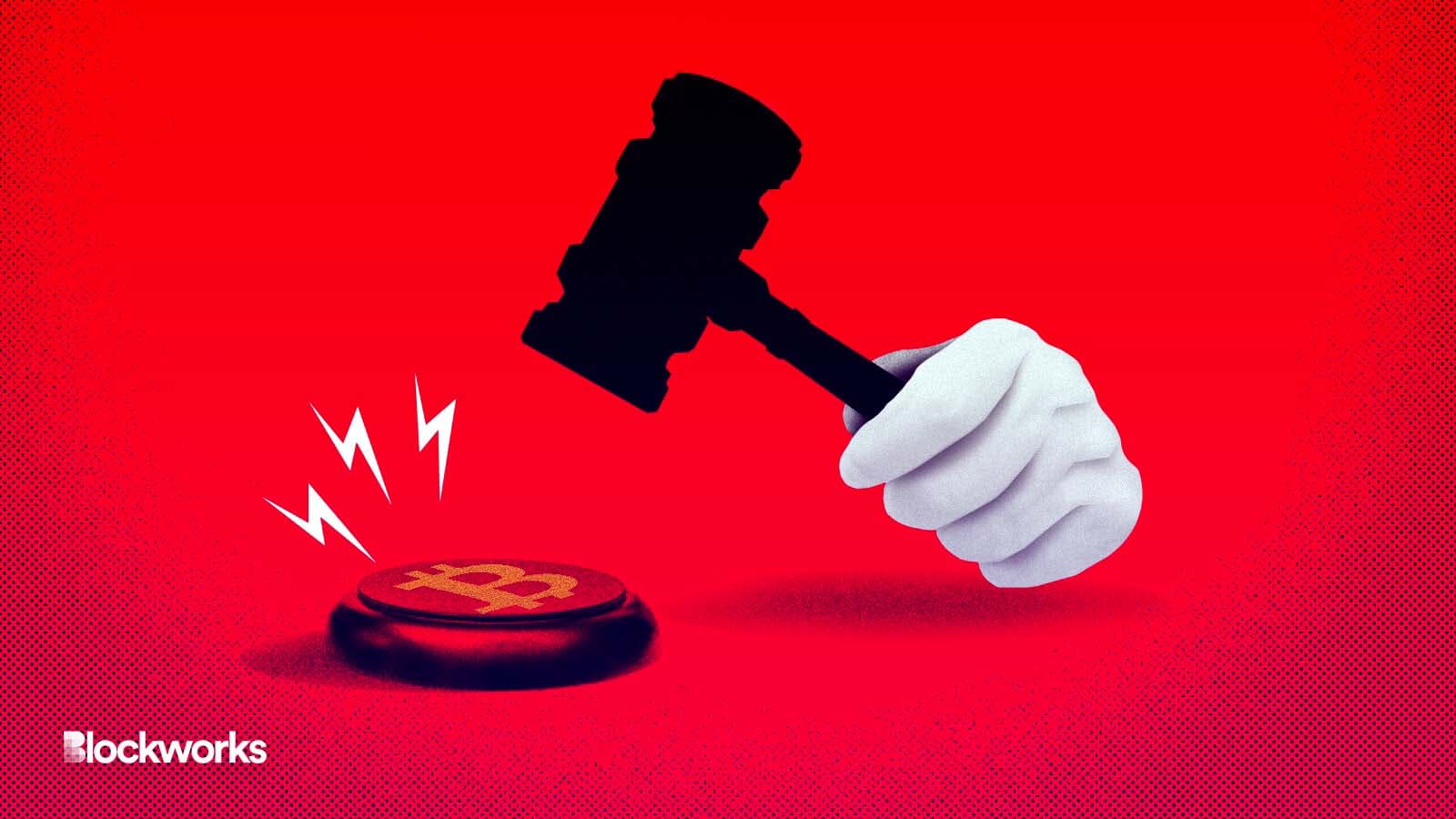SEC Land Grab: Crypto Enforcement Actions Accelerate Under Gensler
After a record year for regulatory action in 2022, the “regulation by enforcement” era has continued into the new year

Exclusive art by Axel Rangel modified by Blockworks
The SEC is hell-bent on keeping the crypto industry in check — even if Congress can’t, or won’t, act to offer the clarity the industry craves.
After a record year for regulatory action in 2022, the “regulation by enforcement” era has continued into the new year, with Gary Gensler’s SEC actively moving to secure a tighter grip over what he claims are ‘securities.’
US agencies and lawmakers have been busy in recent weeks hosting hearings, issuing warnings and collecting substantial settlement cash from crypto companies.
Here are the top policy events and developments from the last two weeks alone.
Do Kwon hit with charges almost a year later
Nearly 12 months after algorithmic stablecoin Terra USD lost its peg, the SEC charged Terraform Labs and CEO Do Kwon on Thursday for allegedly “orchestrating” cryptocurrency securities fraud. In the Southern District of New York, the SEC charged Kown and Terraform Labs with two counts of federal securities fraud.
The charges come after South Korean authorities issued an arrest warrant for Kwon in September 2022.
Kwon and his team “aggressively marketed” Terraform’s cryptocurrencies to US investors, the SEC alleges, by “posting information and promotional materials to accounts on several publicly accessible online social media platforms, such as Twitter accounts, blog posts, YouTube, and messaging applications like Telegram,” per the filing. The marketing efforts, according to regulators, affected retail investors.
In the filing, the SEC said it currently is unaware of Kwon’s whereabouts.
Kraken opts to avoid lengthy trial
Earlier this month, crypto exchange Kraken agreed to settle with the SEC for $30 million over its staking products — which the agency said constituted an unregistered security offering.
The “action should make clear to the marketplace that staking-as-a-service providers must register and provide full, fair, and truthful disclosure and investor protection,” SEC Chair Gary Gensler said in a Feb. 9. statement.
In choosing to settle, Kraken is not setting any sort of precedent, Ledger’s Global Head of Policy Seth Hertlein said during a Twitter Spaces with Blockworks.
“The settlement did not create any new rules or law in the United States, and it’s not binding on anyone besides Kraken, who agreed to it,” Hertlein said. “The scope is actually quite limited.”
Even so, the settlement sent the industry into a frenzy as questions swirled around what regulators could have in store for other staking offerings.
Coinbase CEO Brian Armstrong chimed in saying he had “heard rumors” about the SEC’s plans to ban retail staking outright — a claim the SEC has not confirmed.
Paxos gears up for BUSD fight
The Wall Street Journal reported Sunday that the SEC sent Paxos a Wells notice — a notification that enforcement action is likely pending — claiming that the stablecoin Binance USD (BUSD) is an unregistered security.
On Monday, the New York Department of Financial Services (NYDFS) directed Paxos to cease issuance of new BUSD tokens, effective Feb. 21.
Paxos has managed the minting and redemption of BUSD under an agreement with exchange Binance since 2019.
The news once again sent the industry into a tailspin. Decentralized protocol Aave is almost certain to freeze BUSD on its platform and find a new stablecoin, according to a governance proposal with nearly unanimous support.
A Paxos spokesperson told Blockworks in a statement that the company “categorically disagrees” with the SEC, adding that BUSD is not a security under the federal securities laws. Aside from BUSD, there are no other allegations against Paxos, the spokesperson added.
Gensler pushes for stricter custody rules
On Wednesday, the SEC released its Safeguarding Advisory Client Assets Proposal.
The proposed rule is said to protect investors and their assets by ensuring advisers only use custodians — including those holding crypto — that would not be harmed by insolvency and insufficient reserves.
Historically pro-crypto SEC Commissioner Hester Peirce said she would support the proposal, arguing it unnecessarily limits investors’ cryptocurrency access. Adversary to Peirce is Commissioner Caroline Crenshaw, who has said not adopting the proposal would pave the path for “fraudulent, deceptive or manipulative” custodians.
It’s difficult — at least at this point — to pin down the impact on the industry, according to Hertlein. But, if passed, the rule could significantly change the current custodian landscape, Hertlein said.
“Typically, fund managers are able to custody crypto,” he said. “Now that they need to qualify as custodians, the number of entities that can custody crypto is going to be very little.”
The proposed rule is now open to public comments for 60 days.
Get the news in your inbox. Explore Blockworks newsletters:
- The Breakdown: Decoding crypto and the markets. Daily.
- 0xResearch: Alpha in your inbox. Think like an analyst.






